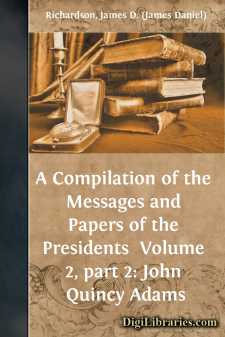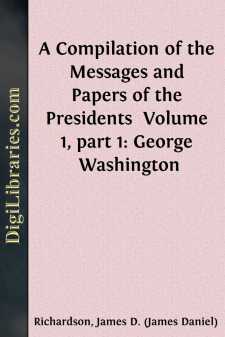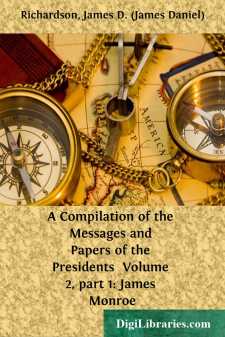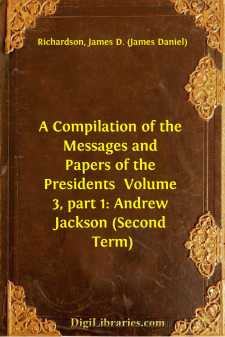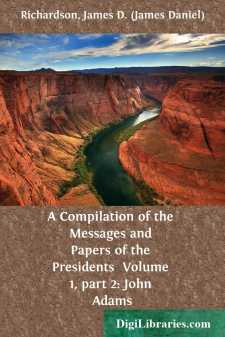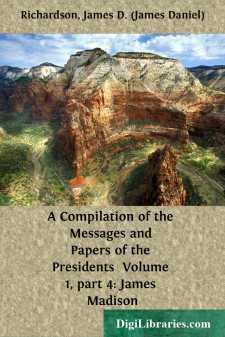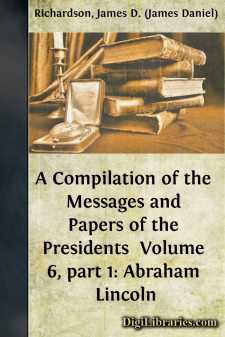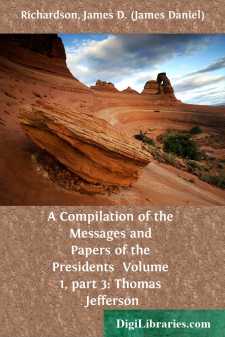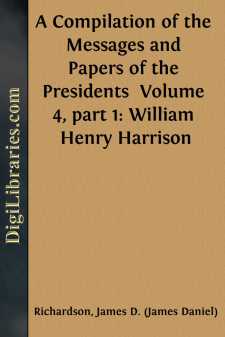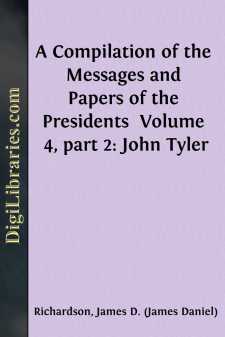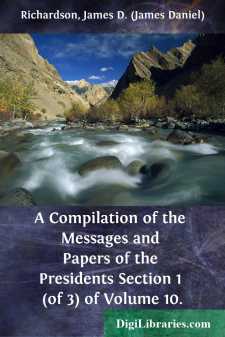Categories
- Antiques & Collectibles 13
- Architecture 36
- Art 48
- Bibles 22
- Biography & Autobiography 813
- Body, Mind & Spirit 142
- Business & Economics 28
- Children's Books 17
- Children's Fiction 14
- Computers 4
- Cooking 94
- Crafts & Hobbies 4
- Drama 346
- Education 46
- Family & Relationships 57
- Fiction 11829
- Games 19
- Gardening 17
- Health & Fitness 34
- History 1377
- House & Home 1
- Humor 147
- Juvenile Fiction 1873
- Juvenile Nonfiction 202
- Language Arts & Disciplines 88
- Law 16
- Literary Collections 686
- Literary Criticism 179
- Mathematics 13
- Medical 41
- Music 40
- Nature 179
- Non-Classifiable 1768
- Performing Arts 7
- Periodicals 1453
- Philosophy 64
- Photography 2
- Poetry 896
- Political Science 203
- Psychology 42
- Reference 154
- Religion 513
- Science 126
- Self-Help 84
- Social Science 81
- Sports & Recreation 34
- Study Aids 3
- Technology & Engineering 59
- Transportation 23
- Travel 463
- True Crime 29
A Compilation of the Messages and Papers of the Presidents Volume 2, part 2: John Quincy Adams
Categories:
Description:
Excerpt
JOHN QUINCY ADAMS
John Quincy Adams, sixth President of the United States, eldest son of John Adams, second President, was born at Braintree, Mass., July 11, 1767. He enjoyed peculiar and rare advantages for education. In childhood he was instructed by his mother, a granddaughter of Colonel John Quincy, and a woman of superior talents. In 1778, when only 11 years old, he accompanied his father to France; attended a school in Paris, and returned home in August, 1779. Having been taken again to Europe by his father in 1780, he pursued his studies at the University of Leyden, where he learned Latin and Greek. In July, 1781, at the age of 14, he was appointed private secretary to Francis Dana, minister to Russia. He remained at St. Petersburg until October, 1782, after which he resumed his studies at The Hague. Was present at the signing of the definitive treaty of peace in Paris, September 3, 1783. He passed some months with his father in London, and returned to the United States to complete his education, entering Harvard College in 1786 and graduating in 1788. He studied law with the celebrated Theophilus Parsons, of Newburyport; was admitted to the bar in 1791, and began to practice in Boston. In 1791 he published in the Boston Centinel, under the signature of "Publicola," a series of able essays, in which he exposed the fallacies and vagaries of the French political reformers. These papers attracted much attention in Europe and the United States. Under the signature of "Marcellus" he wrote, in 1793, several articles, in which he argued that the United States should observe strict neutrality in the war between the French and the British. These writings commended him to the favor of Washington, and he was appointed minister to Holland in May, 1794. In July, 1797, he married Louisa Catherine Johnson, a daughter of Joshua Johnson, of Maryland, who was then American consul at London. In a letter dated February 20, 1797, Washington commended him highly to the elder Adams, and advised the President elect not to withhold promotion from him because he was his son. He was accordingly appointed minister to Berlin in 1797. He negotiated a treaty of amity and commerce with the Prussian Government, and was recalled about February, 1801. He was elected a Senator of the United States by the Federalists of Massachusetts for the term beginning March, 1803. In 1805 he was appointed professor of rhetoric and belles-lettres at Harvard College, and accepted on condition that he should be permitted to attend to his Senatorial duties. He offended the Federalists by supporting Jefferson's embargo act, which was passed in December, 1807, and thus became connected with the Democratic party. He resigned his seat in the Senate in March, 1808, declining to serve for the remainder of the term rather than obey the instructions of the Federalists. In March, 1809, he was appointed by President Madison minister to Russia. During his residence in that country he was nominated to be an associate justice of the Supreme Court of the United States, and confirmed February, 1811; but he declined the appointment....


